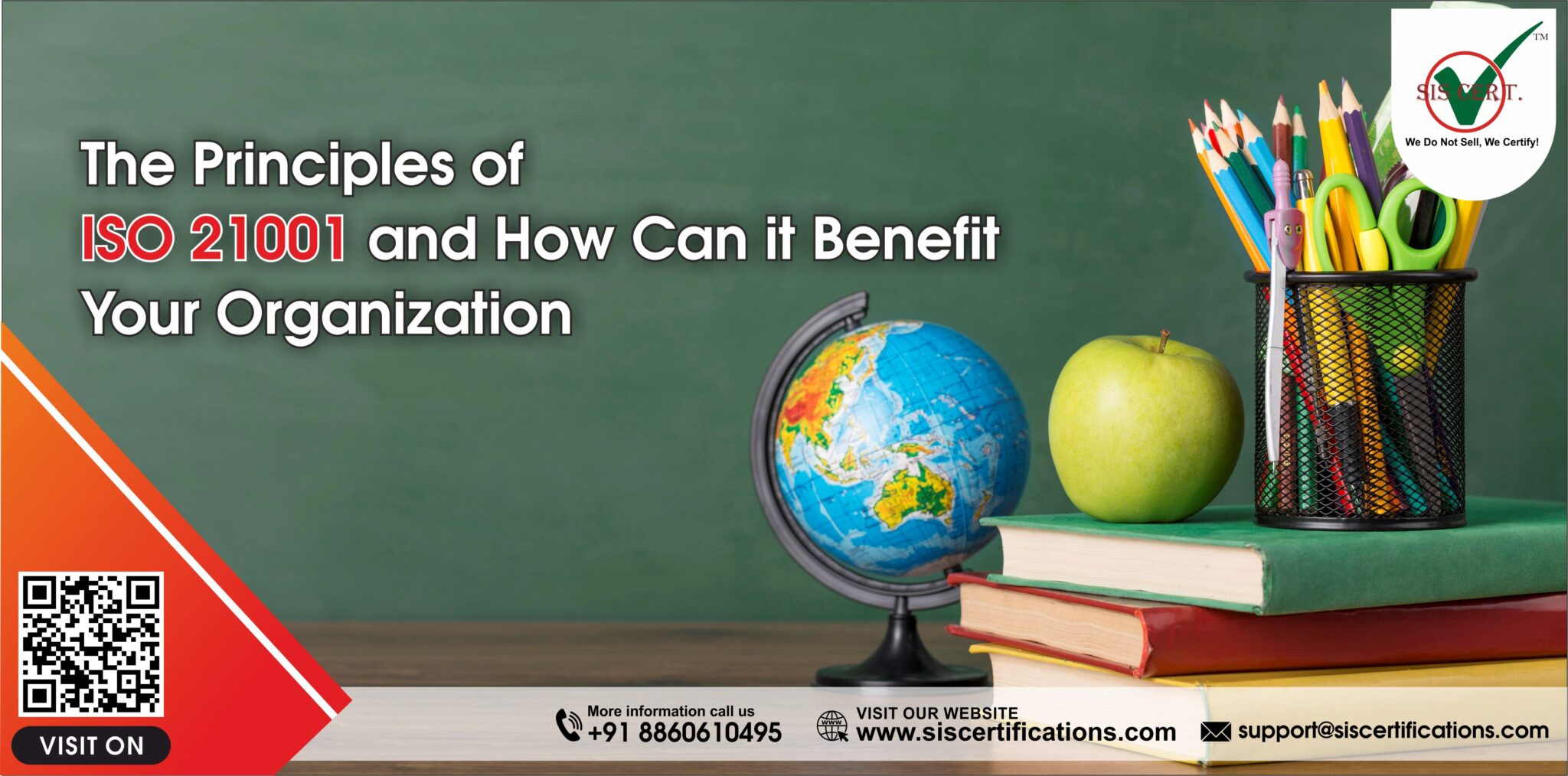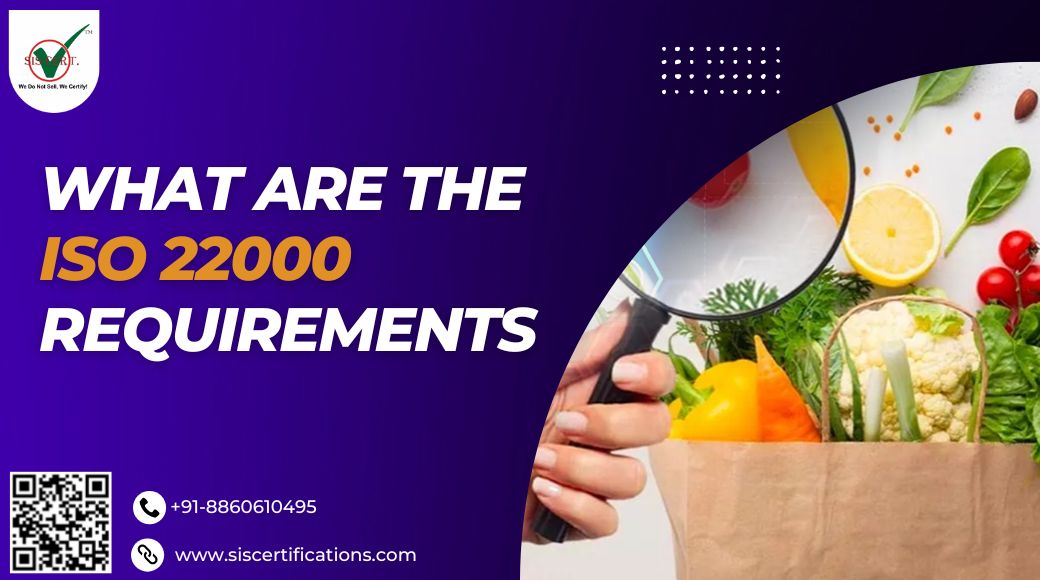ISO 21001 Certification is an Educational Organization Management System (EOMS) standard that aims to enhance the interaction between educational institutions, learners, interested parties, stakeholders and other beneficiaries. It provides tools and techniques to educational institutions to create a more flexible and transparent educational structure and promote inclusive education to address the needs and requirements of individual learners. It integrates various national and international laws, regulations and standards in a single framework and provides a holistic approach to educational organizations. ISO 21001 Certification compliance demonstrates an institution’s commitment and ability to maintain and deliver quality education. Which Educational Organizations can Benefit from ISO 21001 Certification ? The ISO 21001 Certification is an internationally recognized Educational Organization Management System (EOMS) standard. It provides a framework for educational institutions to create a more flexible, transparent and inclusive teaching-learning classroom environment. Any educational organization can apply for ISO 21001 Certification, large and small, regardless of size, nature and location. The following organizations can apply for ISO 21001 Certification: Pre-Schools Colleges Adult Education Centres Universities K-12 Schools Special Education Institutions Training Institutions Vocational Education Centres Tutoring and Coaching Centres Why is ISO 21001 Certification Important?⮯ Education has the potential to change the future of humankind, the better the quality of education, the better the economic performance of a country. ISO 21001 Certification is the world’s first international standard solely dedicated to education. It specifies the requirements for Educational Organization Management System and provides tools and techniques for educational institutions to enhance their services. ISO 21001 standard offers the following benefits to an educational organization: Empowers an organization to offer a customized learning experience to individual learners and promote inclusive classrooms and educational institutions. An inclusive educational institution fulfills the needs and requirements of individual learners, including learners with special needs and diverse backgrounds. Helps institutions in delivering effective and efficient educational services. ISO 21001 certification compliance ensures that the learners get the desired quality of education and enhances learners’ productivity, safety, and well-being. It makes educational institutions more flexible and transparent. ISO 21001 Certification involves all the beneficiaries, learners, interested parties, and stakeholders in determining the vision, mission, and objectives of educational institutions. Promotes excellence and innovation as it focuses on making educational institutions more liberal and child-centric. Educational Organization Management System (EOMS) promotes self-learning and provides lifelong learning opportunities. ISO 21001 standard harmonizes various national and international laws, regulations, and standards in a single framework and offers a holistic approach to an educational organization. It provides a model for equitable and accessible education for all. The ISO 21001 Certification – Educational Organizations Management System (EOMS) follows 11 principles. These are: ⮯ The 11 principles of the Educational Organizations Management System benefit an organization in the following ways: Focus on Learners and Other Beneficiaries – The Educational Organization Management System focuses on meeting the needs and requirements of learners and other beneficiaries. It demonstrates an organization’s ability and commitment to address the requirements of every learner and achieve sustained growth. Visionary Leadership – It aims to create a unity of purpose and direct an organization to align plans, policies, strategies, resources, and procedures to achieve its objectives and mission. It requires the top-level management to demonstrate leadership and all the stakeholders and interested parties in determining the vision, mission, and objectives of the institutions. Engagement of People – It ensures that all people involved are competent, empowered, and engaged in delivering value. EOMS requires involving all the stakeholders and beneficiaries to manage the organization’s efficiency and effectiveness. Process Approach – It focuses on interlinking the various business operations to achieve predictable and expected outcomes. It aims to establish a coherent system and enables the organization to optimize its performance and system. Continual Improvement – Every successful organization follows the principle of continual improvement. It plays a crucial role in maintaining the current level of performance and monitors its internal and external factors to identify potential risks and opportunities. Evidence-Based Decisions – Decision-making is one of the most complex processes and can be subjective. This principle requires an organization to evaluate the prior information to understand the needs and requirements of the learners and prepare a curriculum based on the interpretation. Relationship Management – Relationship management plays a crucial role in achieving sustained growth. An organization must maintain a healthy relationship with the interested parties, stakeholders, and other beneficiaries to establish a well-managed supply chain. Social Responsibility – ISO 26000 Certification outlines the requirements and needs for an organization to be socially responsible. This principle states that an educational institution is responsible for the impacts of its processes and decisions. It aims to improve an organization’s social, economic, and environmental performance by adopting transparent and ethical behavior. Accessibility and Equitability – It focuses on the needs, interests, requirements, backgrounds, and abilities of the individual learners and creates a more flexible, transparent, and inclusive teaching-learning environment. It aims to create a child-centric educational system and offers services based on the learner’s needs and requirements. Ethical Conduct – This principle requires an organization to establish an ethical professional environment and avoid any conflict of interest. It promotes integrity and enables an educational organization to adopt honesty and fairness to establish the highest standards of professionalism. Data Security and Protection – Educational institutions collect and store a large amount of learner’s data, hence they are required to implement appropriate controls to ensure confidentiality and data security. ISO 27001 Certification and ISO 27701 Certification provides tools and techniques for organizations to maintain. Conclusion ✅ ISO 21001 Certification is an internationally accredited Educational Organization Management System (EOMS) standard that provides a framework for educational institutions to create flexible, transparent and inclusive classroom structures to address the need and requirements of individual learners. It provides tools and techniques for educational organizations to meet the needs and requirements of individual learners. ISO 21001 standards apply to all educational institutions, large and small, irrespective of their nature and geographical location. It encourages innovation, develops critical thinking and helps in the overall development of the child. Tags
What are the ISO 22000 requirements?
Food safety has become a global concern and food contamination can take place at any level of the food supply chain. Contaminated food can cause sickness and other food-related problems. According to W.H.O., food safety, nutrition and food security are inextricably linked. The International organization for Standardization (ISO) has developed ISO 22000 certification to ensure food safety and the well-being of consumers. What is ISO 22000 Certification- Food Safety Management System?⮯ ISO 22000 certification is an internationally accredited Food Safety Management System (FSMS) standard that incorporates the ISO 9001 approach to food safety management. It integrates the Hazard Analysis Critical Control Point (HACCP) principles developed by the Codex Alimentarius Commission to identify food safety hazards and implements appropriate controls to eliminate them. ISO 22000 Certification specifies the requirements for a Food Safety Management System (FSMS) standard. Any organization associated with the food industry can apply for ISO 22000 certification, small and large; all food producers have the responsibility to ensure food safety. It provides a framework for organizations to implement and operate a food safety system to offer safe food products to consumers. Requirements for ISO 22000 Certification ISO 22000 certification is a Food Safety Management System (FSMS) System. The general requirements for a Food Safety Management System (FSMS) are as follows: The top-level management requires determining an overall food safety policy for the organization to eliminate food safety hazards. Defining objectives of the organization and aligning business processes and operations to comply with ISO 22000 standards and requirements. Assigning roles and responsibilities and allocating resources to establish effective food safety management. It also requires the food industry to maintain records and documents related to food safety management. Maintaining information related to the performance of the system. It helps organizations evaluate the effectiveness of the management system. Establishing a food safety team. Establishing adequate communication system procedures, internal and external, to manage food safety across the food supply chain. Determining an emergency plan. Executing management review meetings to monitor and evaluate the effectiveness of the Food Safety Management System. Providing required resources, training the personnel, adequate infrastructure and establishing an appropriate work environment to ensure the effectiveness of the FSMS. Integrating Hazard Analysis Critical Control Point (HACCP) principles.Implementing traceability and transparent system to identify and eliminate food safety hazards across the supply chain. Taking corrective actions and implementing appropriate controls to eliminate non-conformities.Establishing an adequate documented procedure for managing the withdrawal of products.Controlling, measuring and monitoring the effective food safety management across the food supply chain. It requires an organization to establish and maintain a periodic internal audit program.To establish an effective Food Safety Management System (FSMS), an organization requires improve its infrastructure and processes continually. Conclusion ✅ The International Organization for Standardization (ISO) has developed ISO 22000 certification to establish an effective Food Safety Management System (FSMS). It provides tools and controls for an organization to eliminate food safety hazards and reduce the risks of food contamination. ISO 22000 standard incorporates HACCP principles to identify food-related risks and hazards across the food supply chain and implements appropriate controls to eliminate them. It establishes a system of traceability and effective communication across the food supply chain to deliver safe and healthy food items to consumers. It makes an organization more reliable and credible by demonstrating the organization’s commitment to food safety and the well-being of consumers. Tags


